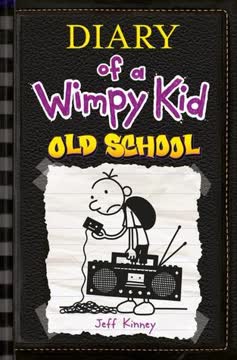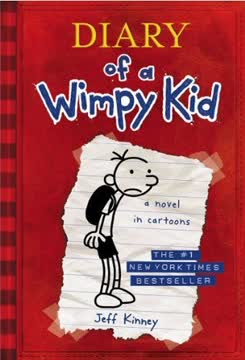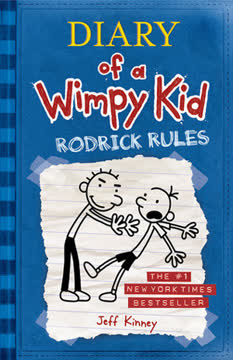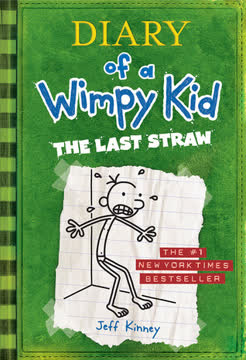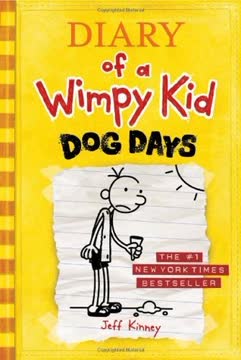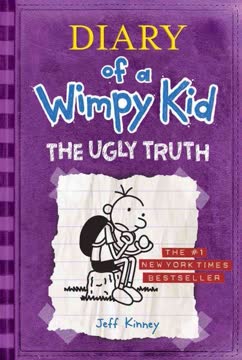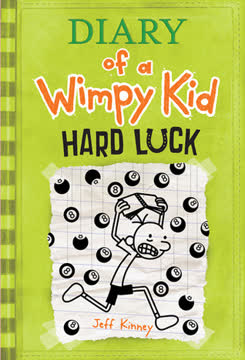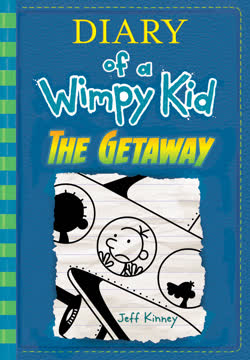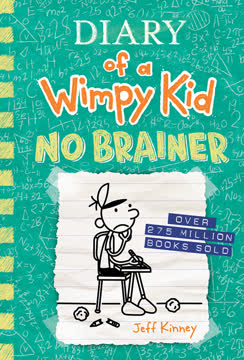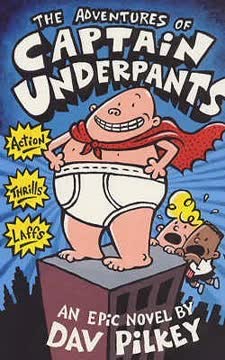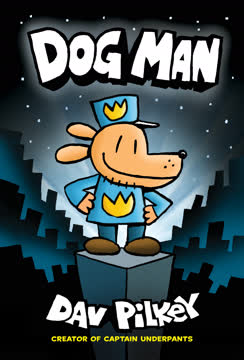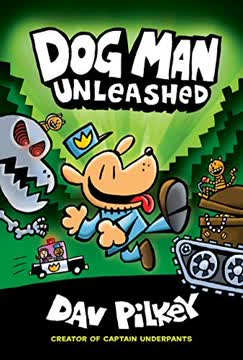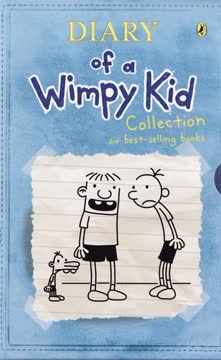Plot Summary
Nostalgia Versus Now
Greg Heffley, a middle schooler, is constantly bombarded by adults reminiscing about the "good old days" and lamenting the rise of technology. Greg, however, is perfectly content with modern conveniences and sees no appeal in the past's hardships. His mother, Susan, is especially vocal, believing that technology has eroded community bonds and family togetherness. Greg's skepticism is clear: he values privacy and comfort, and he's not convinced that life was better before smartphones and baby wipes. This generational divide sets the stage for the book's central conflict—old school values versus modern life.
Mom's Unplugged Crusade
Susan launches a campaign to get the whole town to go electronics-free for a weekend, hoping to foster real connections. She struggles to get signatures for her petition, facing resistance from a community addicted to their screens. Greg is mortified by his mom's activism, especially as it draws unwanted attention to their family. Despite his protests, Susan's determination prevails, and the town eventually agrees to a weekend without electronics, setting up a major test of everyone's ability to cope without their digital crutches.
Grandpa Moves In
When Grandpa can no longer afford his retirement home, he moves in with the Heffleys, displacing Greg from his bedroom. The house becomes crowded and chaotic, with Grandpa's old-fashioned ways clashing with the family's routines. Greg is forced to share a room with his little brother Manny, whose quirks (like "No Pants After Dinner") make life even more uncomfortable. Grandpa's presence amplifies family tensions, especially between Greg's dad, Frank, and the rest of the household, highlighting the challenges of multigenerational living.
Rodrick's Job Woes
Greg's older brother, Rodrick, is pushed to get a job at the Old-Timey Ice Cream Parlour, a kitschy restaurant with humiliating tasks and a mascot costume. Rodrick's struggles with responsibility and low-level work are both comedic and telling—he's unprepared for adult expectations and quickly becomes the family's embarrassment. The family's attempts to support him only make things worse, culminating in a disastrous "promotion" to mascot and a run-in with the law after a carpool lane stunt.
Homework Buddy Genius
Greg signs up for the Homework Buddies program, hoping to skip music class, and is paired with Frew, a child genius. Frew quickly takes over Greg's assignments, boosting Greg's grades but also making him feel inadequate. Greg rationalizes the arrangement as mutually beneficial, but it's clear he's taking advantage. Frew's intelligence and curiosity contrast sharply with Greg's laziness, and their dynamic becomes a microcosm of Greg's tendency to look for shortcuts in life.
Family Tensions Rise
With Grandpa's arrival, the Heffley household becomes a pressure cooker. Frank is frustrated by his children's dependence and lack of self-sufficiency, while Susan's nostalgia for the past clashes with the realities of modern parenting. Greg is caught in the middle, struggling to assert his independence while still relying on his parents for basic tasks. The family's dysfunction is both humorous and relatable, as each member copes with change in their own way.
Hardscrabble Farms Looms
The annual class trip to Hardscrabble Farms, a rustic camp focused on "old-fashioned" values, looms over Greg's grade. Greg is determined not to go, haunted by horror stories from his brother and classmates. However, after a series of mishaps at home, he changes his mind at the last minute, seeing the trip as an escape from family chaos. The camp's strict rules and lack of comforts set the stage for a clash between modern kids and old-school expectations.
Cabin Chaos and Camp Myths
At Hardscrabble Farms, Greg is assigned to a cabin of misfits, including his best friend Rowley and a group of hapless boys. The camp experience is a comedy of errors: failed team-building exercises, unsanitary conditions, and a notorious stew made from leftovers. The boys' ineptitude at basic chores and survival skills is both funny and a commentary on their lack of real-world experience. The camp's discomforts and challenges force Greg and his peers to confront their dependence on modern conveniences.
Silas Scratch Legend
The legend of Silas Scratch, a supposedly deranged farmer who haunts the camp, spreads like wildfire among the kids. The myth is fueled by chaperones and embellished by campers, becoming a source of fear and bonding. Greg is skeptical but can't help being drawn into the hysteria, especially as strange events and pranks escalate. The Silas Scratch story becomes a metaphor for the power of rumor and the ways kids (and adults) use stories to make sense of their anxieties.
Survival and Sabotage
As the camp's final night approaches, the boys must build a shelter and fire without adult help. Greg discovers a survival guide from his grandpa, which becomes their lifeline. The group's attempts at teamwork are undermined by sabotage from rival cabins and their own incompetence. A failed raid on the girls' cabin for deodorant leads to chaos and punishment, while Greg's resourcefulness is tested by both the elements and his peers. The struggle to survive without modern comforts becomes a rite of passage.
The Great Deodorant Raid
The boys' cabin, overwhelmed by filth and stench after their deodorant is confiscated, hatches a plan to steal supplies from the girls. Their mission is a farcical disaster, ending with them being caught and Greg's dad being called in as an emergency chaperone. The episode highlights the limits of rebellion and the inevitability of adult intervention, as well as the importance of hygiene and cooperation—lessons learned the hard way.
Dad's Secret Revealed
On the final night, Greg stumbles upon the "haunted" shack and discovers his dad secretly using it as a private bathroom. Frank confesses that he invented the Silas Scratch legend as a kid to keep others away from his secret spot. The revelation demystifies the camp's central myth and exposes the ways adults perpetuate stories for their own benefit. Greg is both annoyed and impressed, recognizing a kindred spirit in his dad's cunning.
Lessons in Old School
The camp experience, with its discomforts and challenges, forces Greg to confront the value of old-school skills and the limits of modern convenience. He learns the importance of resourcefulness, teamwork, and adaptability, even as he remains skeptical of nostalgia. The generational divide is bridged, if only temporarily, as Greg and his dad share a moment of understanding. The trip ends with Greg choosing to keep the Silas Scratch secret alive, recognizing the power of stories and the need for a little mystery.
Coming Home Changed
Greg returns from Hardscrabble Farms changed—tired, dirty, but a little wiser. He's survived without electronics, learned to cope with discomfort, and gained a grudging respect for old-school values. The family's chaos is still waiting for him, but Greg's experiences have given him a new appreciation for both the past and the present. The book ends with Greg passing on the Silas Scratch legend to the next group of campers, ensuring that the cycle of myth and rumor continues.
Characters
Greg Heffley
Greg is the self-centered, sarcastic protagonist whose worldview is shaped by a desire for comfort and minimal effort. He's resistant to change, skeptical of nostalgia, and always looking for shortcuts. Greg's relationships—with his family, friends, and authority figures—are marked by a mix of dependence and rebellion. Psychologically, Greg is insecure but resourceful, often masking his anxieties with humor and cynicism. Over the course of the story, he's forced to confront his limitations and adapt, showing growth in his ability to cope with discomfort and uncertainty.
Susan Heffley (Mom)
Susan is the driving force behind the book's central conflict, championing old-school values and community togetherness. Her campaign to unplug the town is both earnest and embarrassing for Greg, highlighting her tendency to impose her ideals on her family. Susan's nostalgia is both a strength and a blind spot—she genuinely wants the best for her children but often underestimates the challenges of modern life. Her relationship with Greg is loving but fraught, as she struggles to balance her ideals with the realities of parenting.
Frank Heffley (Dad)
Frank is caught between his wife's nostalgia and his children's dependence. He's frustrated by his kids' lack of self-sufficiency and longs for the toughness of his own childhood. Frank's own past, however, is revealed to be less heroic than he claims—his invention of the Silas Scratch legend exposes his capacity for mischief and self-preservation. Psychologically, Frank is anxious about losing control and relevance, but he ultimately connects with Greg through shared cunning and a mutual appreciation for a good story.
Rodrick Heffley
Rodrick embodies adolescent irresponsibility and resistance to adult expectations. His misadventures at work and run-ins with authority provide comic relief and a cautionary example for Greg. Rodrick's relationship with Greg is antagonistic but also a source of solidarity—they're both navigating the pitfalls of growing up in a family that doesn't always understand them. Rodrick's failures highlight the challenges of transitioning to adulthood and the importance of resilience.
Grandpa
Grandpa's arrival upends the family dynamic, bringing with him a mix of wisdom, eccentricity, and chaos. He represents the past in both its virtues and its flaws—nostalgic but also stubborn and set in his ways. Grandpa's presence forces the family to confront their own limitations and adapt to change. Psychologically, he's both a source of comfort and frustration, embodying the complexities of aging and intergenerational relationships.
Rowley Jefferson
Rowley is Greg's best friend and frequent sidekick, whose naivety and enthusiasm contrast with Greg's cynicism. He's often the victim of Greg's schemes but remains steadfastly loyal. Rowley's innocence and vulnerability highlight Greg's own shortcomings, serving as a mirror for his moral choices. Over the course of the story, Rowley's experiences at camp test his resilience and deepen his friendship with Greg.
Frew
Frew is a third-grade genius who becomes Greg's "homework buddy." His intelligence and curiosity are both a resource and a challenge for Greg, who relies on Frew's help but also feels threatened by his abilities. Frew's willingness to help is rooted in a desire for connection and validation, but he's also exploited by Greg's laziness. Psychologically, Frew represents the pressures placed on gifted children and the complexities of peer relationships.
Manny Heffley
Manny's odd behaviors (like "No Pants After Dinner") and privileged status as the baby of the family add to the household's dysfunction. He's both a source of comic relief and a symbol of the challenges of parenting in a modern world. Manny's relationship with Greg is marked by rivalry and resentment, but also a grudging affection.
Mr. Jefferson
Rowley's father serves as the boys' cabin chaperone at Hardscrabble Farms. His overbearing nature and lack of practical skills make him both a hindrance and a source of comic relief. Mr. Jefferson's attempts to enforce order often backfire, highlighting the limits of adult authority and the importance of adaptability.
Silas Scratch (Legend)
Silas Scratch is the camp legend invented by Frank as a child, but he takes on a life of his own in the campers' imaginations. The myth serves as a focal point for the kids' anxieties and a tool for adults to maintain control. Silas Scratch's enduring power reflects the ways stories shape behavior and create community, even when they're based on fiction.
Plot Devices
Generational Conflict
The central tension of the book is the clash between nostalgia for the past and the realities of contemporary life. This conflict is embodied in the relationships between Greg, his parents, and his grandfather, and is played out through the unplugged weekend, the camp experience, and the family's daily struggles. The narrative structure alternates between home and camp, highlighting the universality of these generational tensions.
Satirical Humor
The book uses humor to lampoon both the excesses of modern life and the romanticization of the past. Greg's sarcastic narration, the absurdity of the unplugged weekend, and the chaos of camp all serve to expose the flaws and contradictions in both old and new ways of living. The humor is both a coping mechanism and a tool for social commentary.
Myth and Rumor
The Silas Scratch legend is a central plot device, illustrating how myths are created, spread, and maintained. The story's evolution—from a tool for personal gain to a source of collective anxiety—demonstrates the ways in which rumors can become self-fulfilling prophecies. The eventual revelation of the truth behind the myth serves as a commentary on the nature of belief and the importance of skepticism.
Survival and Adaptation
The camp setting functions as a crucible for character development, forcing Greg and his peers to confront their dependence on modern comforts and learn new skills. The survival guide, the failed raids, and the struggle to build a shelter all serve as tests of resourcefulness and adaptability. These challenges drive the narrative and facilitate personal growth.
Foreshadowing and Irony
The book employs foreshadowing through stories of past camp disasters, warnings about Silas Scratch, and Greg's initial resistance to the trip. Irony abounds, as characters' attempts to avoid discomfort often lead to greater chaos. The ultimate revelation that Silas Scratch is a fabrication is both a twist and a commentary on the power of narrative.
Analysis
Old School is a sharp, satirical exploration of the tension between nostalgia and progress, comfort and challenge, and the messy process of growing up. Through Greg's misadventures, Jeff Kinney lampoons both the excesses of modern convenience and the unrealistic idealization of the past. The book's humor masks deeper questions about self-reliance, adaptability, and the stories we tell ourselves to make sense of change. By forcing his characters to unplug, confront discomfort, and navigate the chaos of both family and camp, Kinney suggests that growth comes not from clinging to the past or escaping into technology, but from facing challenges head-on and learning to adapt. The enduring power of myth—embodied in the Silas Scratch legend—reminds us that stories shape our fears, our communities, and our sense of self. Ultimately, Old School is a call to balance the best of both worlds: to appreciate the comforts of the present while embracing the lessons of the past, and to find humor and resilience in the face of life's inevitable messiness.
Last updated:
FAQ
Synopsis & Basic Details
What is Old School about?
- Greg's Modern Predicament: Old School follows Greg Heffley, a middle schooler who cherishes modern conveniences and technology, clashing with his mother's nostalgic desire for a simpler, unplugged life. This generational conflict is exacerbated when his Grandpa moves in, disrupting the family's already chaotic household.
- Unplugging the Town: Greg's mom spearheads a town-wide initiative to go electronics-free for a weekend, forcing Greg and his family to confront a world without their digital crutches. This experiment highlights the challenges of modern dependence on technology and the idealized "good old days."
- Hardscrabble Farms Adventure: To escape mounting family tensions and a disastrous car incident, Greg reluctantly joins his class on a week-long trip to Hardscrabble Farms, a rustic camp emphasizing "old-fashioned values." Here, he faces unsanitary conditions, challenging chores, and the terrifying legend of Silas Scratch, pushing him to develop unexpected resourcefulness.
Why should I read Old School?
- Relatable Generational Conflict Humor: Readers will find humor in the universal struggle between parents' nostalgia for the past and kids' reliance on modern technology, making the
Old School themeshighly resonant. Greg's sarcastic observations and attempts to navigate this divide provide constant laughs. - Unexpected Character Growth: Despite his initial resistance to "old school" values, Greg is forced into situations that challenge his comfort-seeking nature, leading to subtle but significant personal development in
Greg Heffley's character arc. His journey offers insights into adaptability and self-reliance. - Clever Plot Twists & Symbolism: The narrative cleverly weaves in elements of mystery and revelation, particularly around the
Silas Scratch legend explained, which serves as a powerful symbol for the stories we tell ourselves and the secrets we keep. The book'sOld School analysisreveals deeper layers of meaning.
What is the background of Old School?
- Cultural Shift to Digital Dependence: The book is set against a contemporary backdrop where electronic devices are ubiquitous, reflecting a societal concern about screen time and its impact on human connection. Mom's "unplugging" petition directly addresses this
technology themes in Old Schoolcultural anxiety. - Nostalgia for Simpler Times: The narrative is steeped in the adult generation's longing for a perceived "good old days" where kids played outside and communities were tighter. This
Old School cultural contextprovides the central conflict, contrasting idealized pasts with the messy realities of the present. - Suburban Family Dynamics: The Heffley family's struggles with multi-generational living, sibling rivalry, and parental expectations are a relatable portrayal of modern suburban life. The chaos of Grandpa moving in and Rodrick's job woes ground the story in everyday family challenges.
What are the most memorable quotes in Old School?
- "I really don't understand why Mom thinks we need to go BACKWARD, anyway. From what I can tell, the old days weren't that much fun.": This quote, early in the book (page 4), perfectly encapsulates Greg's cynical and pragmatic view of nostalgia, setting up his resistance to his mother's "old school" ideals and the central
generational conflict in Old School. - "I'm all for technology, but not when it's used AGAINST me.": Greg's declaration (page 59) after discovering his dad's webcam highlights his self-serving relationship with technology, valuing convenience but resenting surveillance, and revealing his underlying paranoia about control and privacy.
- "I was pretty mad at Dad for causing everyone all this stress. But I have to admit that coming up with a crazy story to protect a secret bathroom is EXACTLY the kind of thing I'd do MYSELF.": This pivotal realization (page 213) at the end of the book shows Greg's newfound understanding and connection with his father, bridging their
Frank Heffley and Greg Heffley relationshipthrough shared cunning and a pragmatic approach to self-preservation.
What writing style, narrative choices, and literary techniques does Jeff Kinney use?
- First-Person Diary Narration: The entire story is told from Greg Heffley's perspective through his diary entries, offering an intimate, often biased, and humorous insight into his thoughts and experiences. This
Jeff Kinney writing styleallows readers to directly engage with Greg's unique voice and worldview. - Illustrative Storytelling: Kinney seamlessly integrates simple, cartoon-like illustrations with the text, enhancing the comedic timing and visual storytelling. These
Diary of a Wimpy Kid literary techniquesnot only break up the text but also provide visual gags and character expressions that deepen the narrative. - Satirical Humor and Ironic Tone: The narrative employs a consistently satirical tone, using exaggeration and irony to critique modern society's reliance on technology and the romanticization of the past. Greg's deadpan observations and the absurd situations he finds himself in contribute to the book's
Old School satirical humor.
Hidden Details & Subtle Connections
What are some minor details that add significant meaning?
- The Pig's Upright Walk: The pig learning to walk on its hind legs and wear Manny's shorts (page 12) is a subtle, absurd detail that symbolizes the Heffley family's chaotic home life and their inability to maintain order, foreshadowing the further disruption Grandpa's arrival will bring. It also subtly critiques human anthropomorphism of pets.
- Rodrick's Unpacked Duffel Bag: The fact that Rodrick's duffel bag from his own Hardscrabble Farms trip years ago is still unpacked in the garage (page 127) subtly hints at the traumatic or impactful nature of the camp experience, foreshadowing Greg's own challenging journey and the lasting impression the camp leaves.
- The Park's Decline and the "Cell Phone Only" Path: The detail that the town park became run-down because money was diverted to a failed "cell phone only" path (page 65) is a sharp, subtle critique of misplaced priorities in modern society, where technology-driven conveniences are prioritized over basic community infrastructure and maintenance.
What are some subtle foreshadowing and callbacks?
- Dad's Frontier Analogy: Dad's dramatic story about Greg starving on a desert island or the family being eaten by wolves due to a forgotten toothpaste cap (page 28) subtly foreshadows Greg's later real-world survival challenges at Hardscrabble Farms and his struggle with self-sufficiency.
- The Pig's GPS Chip: Mom's decision to put a GPS tracking chip on the pig (page 12) seems like a throwaway gag, but it's a crucial callback when Greg discovers he's been wearing a similar chip on his shoelace (page 108), revealing Mom's overprotective nature and how technology is used for surveillance.
- Rodrick's Hardscrabble Trauma: Rodrick's "traumatized" reaction to Hardscrabble Farms, crawling into bed for a weekend (page 46), subtly foreshadows the camp's harsh realities and the emotional toll it takes on the kids, building anticipation for Greg's own experience.
What are some unexpected character connections?
- Greg and Frew's Exploitative Symbiosis: The relationship between Greg and Frew, where Greg exploits Frew's genius for homework (page 17), is an unexpected connection that highlights Greg's resourcefulness and ethical ambiguity, while also showing Frew's unspoken desire for engagement and challenge beyond his elementary school curriculum.
- Grandpa's Online Dating Monster: Grandpa's rapid immersion into online dating (page 41), creating a "monster" of simultaneous relationships, unexpectedly connects him to the very technology Greg's mom is fighting against. It shows the older generation's surprising adaptability and the universal human need for connection, regardless of the medium.
- Dad's Shared Cunning with Greg: The ultimate revelation that Dad invented the Silas Scratch legend (page 212) creates an unexpected and profound connection between him and Greg. It reveals a shared trait of cunning and self-preservation, bridging their
Frank Heffley and Greg Heffley relationshipand offering Greg a new perspective on his father.
Who are the most significant supporting characters?
- Frew, the Child Prodigy: Frew is significant as Greg's "Homework Buddy" (page 16), serving as a foil to Greg's laziness and a catalyst for his academic success, albeit through exploitation. His intelligence and later emotional outburst in the woods highlight the pressures on gifted children and the
Frew Old School analysisof his character. - Grandpa, the Catalyst for Chaos: Grandpa's move into the Heffley household (page 20) is a major plot driver, displacing Greg, creating family tension, and leading to the disastrous party and car incident. He embodies the "old school" values and challenges the family's modern routines, forcing them to adapt.
- The Girl Scouts, Agents of Order: The sudden arrival of the Girl Scouts at the park cleanup (page 89) is a pivotal moment, as they efficiently organize the chaotic volunteers. They represent competence, teamwork, and a pragmatic approach to "old school" values, contrasting sharply with the boys' ineptitude and highlighting the
Old School themesof effective community action.
Psychological, Emotional, & Relational Analysis
What are some unspoken motivations of the characters?
- Mom's Quest for Connection: Susan's relentless "unplugging" crusade (page 2) is driven by an unspoken longing for genuine community and family connection, a reaction to the perceived isolation caused by technology. Her
Susan Heffley motivationsstem from a deep-seated idealism and a desire to recreate a nostalgic past. - Dad's Fear of Softness: Frank's constant criticism of his children's dependence and his emphasis on self-sufficiency (page 25) are rooted in an unspoken fear that his kids are becoming "soft" and unprepared for the "real world." His
Frank Heffley psychologyreveals an anxiety about his legacy and the perceived decline of traditional toughness. - Greg's Avoidance of Responsibility: Greg's primary unspoken motivation is to avoid discomfort and responsibility at all costs, whether it's skipping music class (page 16), exploiting Frew (page 18), or trying to escape the Hardscrabble Farms trip (page 45). This
Greg Heffley motivationsdrives much of the plot and his comedic misadventures.
What psychological complexities do the characters exhibit?
- Greg's Self-Preservation vs. Guilt: Greg constantly grapples with his desire for self-preservation, often at the expense of others (e.g., blaming Billy for the Thin Mints, page 107), yet he experiences moments of guilt or discomfort, such as feeling "a little bad" about Frew doing his homework (page 17). This
Greg Heffley psychologyshowcases his developing moral compass. - Dad's Hypocrisy and Hidden Past: Frank exhibits psychological complexity through his outward demands for self-reliance from his children while secretly maintaining his own "old school" comfort (the hidden bathroom, page 212). This
Frank Heffley psychologyreveals a human tendency to project ideals while harboring personal exceptions, making him more relatable. - Grandpa's Vulnerability and Adaptability: Despite his "old school" persona, Grandpa's vulnerability is evident after his breakup with Darlene (page 40), leading him to embrace online dating. This
Grandpa Old School analysisshows his psychological need for companionship and his surprising adaptability to modern methods, challenging stereotypes of the elderly.
What are the major emotional turning points?
- Grandpa's Party and Dad's Punishment: The chaotic party Grandpa throws (page 54) and Dad's subsequent "time-out" punishment (page 56) mark a significant emotional turning point, highlighting the escalating family tensions and Dad's struggle to assert authority over his own father. It underscores the
Old School family dynamicsunder pressure. - The Car Incident and Greg's Panic: Greg's terrifying experience driving with Grandpa and the subsequent car crash (page 118-124) is a major emotional turning point, forcing him to confront real danger and the consequences of his actions. This
Old School emotional momentsdirectly leads to his decision to go to Hardscrabble Farms as an escape. - The Silas Scratch Revelation: The discovery of Dad in the "haunted" shack (page 211) and his confession about inventing Silas Scratch is a profound emotional turning point for Greg. It shifts his perception of his father, demystifies a source of fear, and creates a moment of unexpected
Greg Heffley character developmentand connection.
How do relationship dynamics evolve?
- Greg and Dad's Shifting Respect: Initially strained by Dad's demands for self-sufficiency and Greg's perceived failures, their
Greg Heffley and Frank Heffley relationshipevolves through shared adversity and the Silas Scratch revelation. Greg gains a grudging respect for his dad's cunning, and Dad, in turn, offers Greg a ride home, signifying a subtle bond. - The Heffley Family's Resilience: The family unit, initially fractured by Grandpa's arrival and Mom's crusade, demonstrates resilience through shared experiences like Rodrick's job woes and the car incident. Despite the chaos, they ultimately stick together, highlighting the enduring, if messy, nature of
Old School family dynamics. - Greg and Rowley's Tested Friendship: Rowley's unwavering loyalty is tested by Greg's self-serving actions, such as exploiting him for the lemonade stand (page 70) and leaving him behind during the raid (page 197). Despite these challenges, their
Greg Heffley and Rowley Jefferson friendshipendures, showcasing Rowley's forgiving nature and Greg's reliance on his best friend.
Interpretation & Debate
Which parts of the story remain ambiguous or open-ended?
- The Long-Term Impact of the Unplugged Weekend: While the town's electronics-free weekend is a central event, its lasting effects on the community's relationship with technology are left ambiguous. It's debatable whether it truly fostered deeper connections or was merely a temporary inconvenience, leaving
Old School open questionsabout societal change. - The Extent of Greg's True Growth: While Greg shows moments of resourcefulness and empathy, his decision to perpetuate the Silas Scratch myth (page 216) and his continued self-serving tendencies leave his ultimate character development open to interpretation. Readers might debate whether he truly learned "old school" values or simply adapted for convenience.
- The Future of Grandpa's Online Dating Life: Grandpa's prolific online dating (page 41) is presented humorously, but the long-term implications of his "send all" party and his continued digital relationships are left unresolved. It's ambiguous whether he finds genuine companionship or continues his chaotic digital escapades.
What are some debatable, controversial scenes or moments in Old School?
- Greg's Exploitation of Frew: Greg's consistent use of Frew to do his homework (page 18) is a debatable ethical moment. While presented comically, it raises questions about academic integrity and
Greg Heffley's motivationsfor taking shortcuts, prompting readers to consider the morality of his actions. - The Deodorant Raid on the Girls' Cabin: The boys' decision to raid the girls' cabin for deodorant (page 189) is a controversial scene, highlighting themes of desperation, gender dynamics, and invasion of privacy. It sparks debate about the boys' entitlement and the chaperones' failure to adequately address their needs.
- Greg Blaming Billy Rotner: Greg's choice to blame Billy Rotner for the Thin Mints and the escape attempt (page 107) is a morally ambiguous moment. While it saves Greg from trouble, it's a clear act of self-preservation at another's expense, inviting
Old School ethical dilemmasand discussion about personal responsibility.
Old School Ending Explained: How It Ends & What It Means
- The Silas Scratch Revelation: The story culminates with Greg discovering his dad, Frank, secretly using the "haunted" Silas Scratch shack as a private bathroom (page 211). Frank confesses he invented the legend as a child to keep others away from his secret comfort, demystifying the camp's central
Silas Scratch legend explained. - Greg's Shared Cunning and Choice: Greg, recognizing his dad's ingenuity and shared trait of self-preservation, chooses to perpetuate the Silas Scratch myth by leaving a warning for the next group of campers (page 217). This decision signifies his understanding of the power of stories and his own evolving, yet still self-serving, nature.
- Cyclical Nature of "Old School" Lessons: The ending suggests that "old school" lessons, whether about survival or cunning, are cyclical and passed down through generations, often in unexpected ways. Greg's experience at Hardscrabble Farms, initially dreaded, ultimately provides him with a new perspective on his family and the value of resourcefulness, even if his application of these lessons remains uniquely Heffley.
Review Summary
Old School receives mostly positive reviews, with an average rating of 4.30 out of 5. Readers appreciate the humor and relatable situations, though some find it less engaging than previous installments. Many enjoy Greg's camping adventure and the family dynamics. Some criticize the lack of character development and overuse of technology-related themes. Despite mixed opinions on the plot, fans continue to find the series entertaining and look forward to future books. The unique illustration style and quick-read format are praised by both young and adult readers.
Diary of a Wimpy Kid Series
Similar Books
Download PDF
Download EPUB
.epub digital book format is ideal for reading ebooks on phones, tablets, and e-readers.
